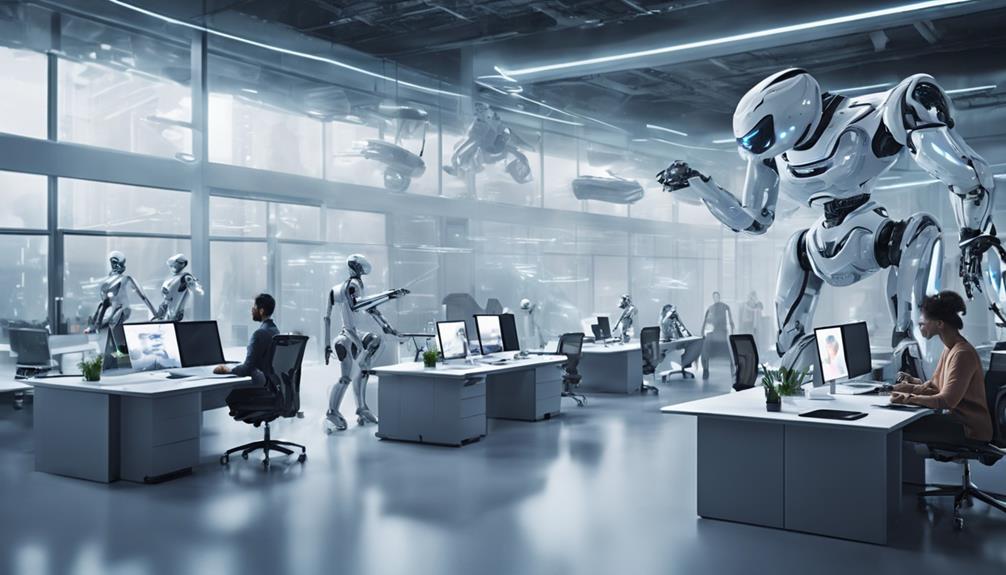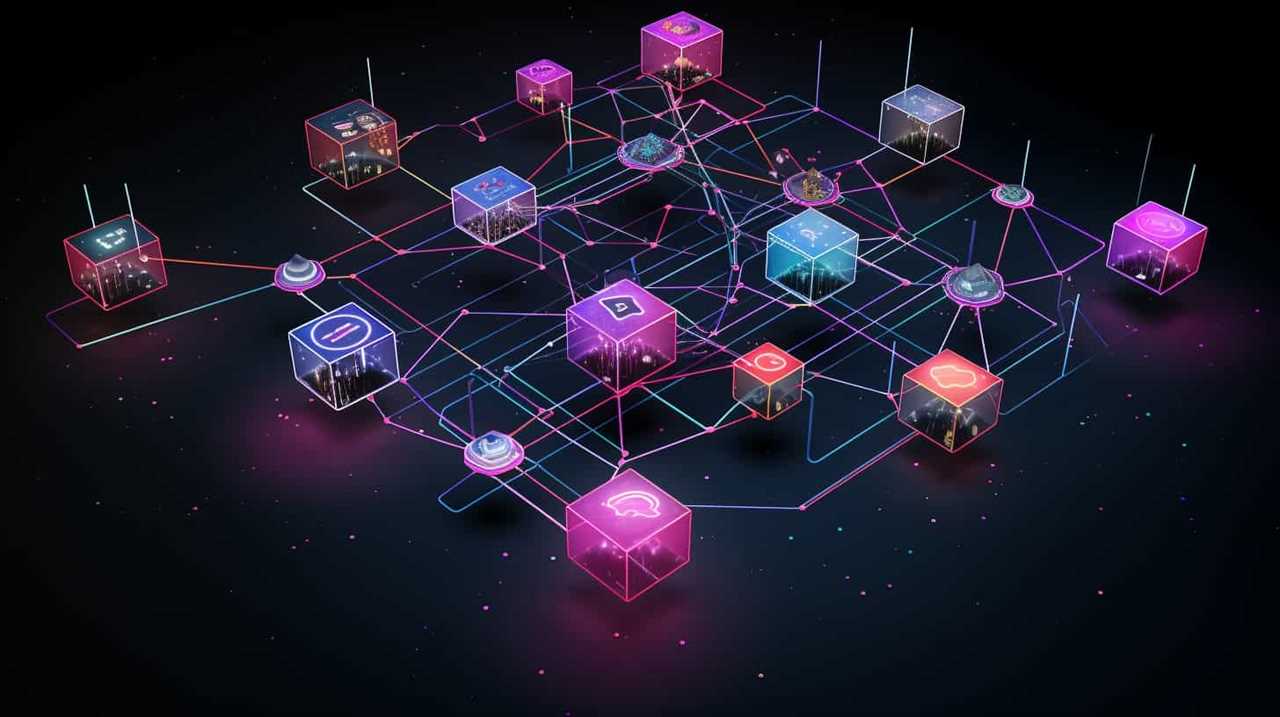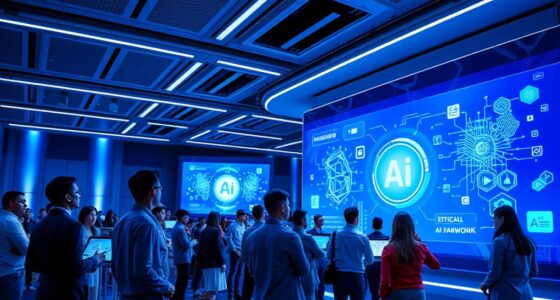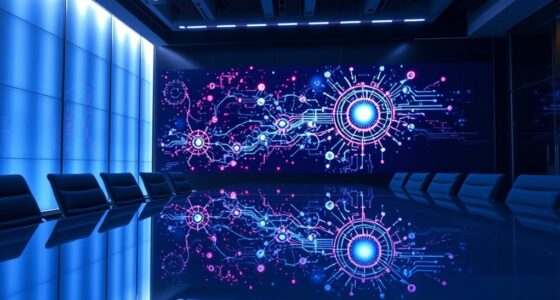Within the constantly changing world of technology and automation, the influence of artificial intelligence on transforming the employment landscape has gained significant attention. With the ongoing progression of AI, its effects on different careers and sectors prompts discussions on what the future holds for the workplace.
From customer service representatives to truck drivers, the looming shadow of automation poses a significant challenge. Yet, amidst the concerns of job displacement, there lies a narrative of adaptation and evolution.
The comprehensive guide on 'How AI Is Replacing Jobs' navigates through the complexities of this transformation, shedding light on both the risks and opportunities that accompany AI's integration into our workforce.
Key Takeaways
- AI automation disrupts industries, replacing human jobs rapidly.
- Upskilling and reskilling programs crucial for job readiness.
- Specialized AI roles emerge, creating new job opportunities.
- Emphasis on human-centric skills for long-term employability.
Impact of AI on Job Displacement
The impact of artificial intelligence (AI) on job displacement is a pressing concern as projections indicate significant disruptions across various industries globally by 2025. With AI tools becoming increasingly sophisticated, the landscape of employment is set to change as jobs traditionally performed by humans are replaced by automation.
Customer service roles, in particular, are at risk of being replaced by AI, as chatbots and virtual assistants can efficiently handle inquiries and provide support. This shift towards automation raises concerns about job loss and the future of jobs, with an estimated 85 million jobs projected to be replaced by AI by 2025.
As AI continues to advance, workers in roles such as customer service representatives, car and truck drivers, computer programmers, research analysts, and paralegals face the potential threat of being replaced by AI systems. The integration of AI into various industries signifies a transformative period in the labor market, with job displacement becoming a reality for many workers.
The future of jobs is evolving rapidly, prompting a reevaluation of skills and job readiness in the face of increasing automation and technological innovation.
Industries Most Affected by AI

Industries experience varying degrees of disruption from AI, with significant impacts observed in healthcare, agriculture, industrial manufacturing, retail, and transportation sectors.
In healthcare, AI is revolutionizing tumor diagnosis through automated processes that enhance accuracy and efficiency.
The agriculture industry is also undergoing transformation, with AI-driven automated processes streamlining tasks such as harvesting and monitoring, leading to increased productivity.
The industrial sector is facing job disruptions as AI automates manufacturing and production processes, altering traditional job roles.
Retail is adopting AI for automated checkout systems and advanced inventory management, improving customer experiences and operational efficiency.
Furthermore, transportation is witnessing a shift with the introduction of autonomous vehicles, reducing the reliance on human drivers and paving the way for enhanced safety and efficiency in the sector.
These industries are at the forefront of AI integration, reshaping operations and job landscapes in profound ways.
Potential Solutions for Job Displacement
With advancements in artificial intelligence reshaping the job market, exploring effective strategies to address potential job displacement is crucial for ensuring a smooth transition for workers. Here are some key solutions to mitigate the impact of AI replacing jobs:
- Upskilling and Reskilling Programs: Offering training in new technologies and skills can help workers adapt to evolving job demands in AI-related fields.
- Government Job Creation Policies: Implementing initiatives that promote job growth in emerging industries can offset the effects of job displacement caused by AI.
- Encouraging Entrepreneurship and Innovation: Fostering a culture of entrepreneurship can lead to the creation of new job opportunities within the AI sector.
- Emphasis on Human-Centric Skills: Investing in education and training programs that focus on skills like emotional intelligence and creativity can prepare individuals for roles less susceptible to automation, ensuring long-term employability.
Benefits of AI in the Workplace

Incorporating artificial intelligence (AI) into the modern workplace offers a myriad of advantages, revolutionizing operational efficiency and task delegation. AI saves time by automating processes such as data entry and document summarization, freeing up employees to focus on more complex tasks that require human insight and decision-making. Tools like ChatGPT and Copilot assist in generating article outlines and summaries swiftly, enhancing employee productivity. Moreover, AI chatbots, when equipped with company-specific data, can provide personalized responses to customer queries, thereby improving customer service. This integration of AI complements human capabilities, enabling professionals to concentrate on tasks that demand empathy and personalization. The table below summarizes the key benefits of AI in the workplace:
| Benefits of AI in the Workplace |
|---|
| Saves time on tedious tasks |
| Enhances workplace efficiency |
| Automates processes |
| Improves decision-making |
| Enhances customer service |
How AI Will Create Jobs
The advent of artificial intelligence (AI) is poised to catalyze the creation of new job opportunities across various sectors, particularly in specialized roles like machine learning engineers and AI ethics specialists. As AI continues to advance, it is evident that it will not only replace certain jobs but also create a demand for workers with specific skills to operate, manage, and oversee AI systems effectively.
Here are four key ways in which AI will create new job opportunities:
- Specialized AI Roles: The growing integration of AI in industries will lead to the emergence of new job roles requiring expertise in areas such as data science, machine learning, and AI ethics.
- Human Touch Essential: While AI systems automate tasks, the human touch remains essential for training, monitoring, and ensuring ethical AI practices, thereby creating roles that necessitate human intervention.
- Transformation of Existing Roles: AI technology redirects human effort towards more productive tasks, transforming existing roles and creating space for new job opportunities.
- Net Increase in Job Opportunities: Despite replacing some existing roles, the adoption of AI is expected to result in a net increase in job opportunities, offering diverse career paths for individuals skilled in AI-related domains.
Frequently Asked Questions
What Are the Jobs That AI Will Replace?
The jobs that AI will replace span various industries, including customer service representatives, drivers, computer programmers, research analysts, and paralegals. Automation and AI tools are increasingly capable of handling tasks traditionally performed by humans in these roles.
How Will AI Replace Workers?
AI replaces workers by automating tasks through algorithms and machine learning, impacting roles that involve repetitive or rule-based functions. By enhancing efficiency and accuracy, AI disrupts traditional job structures, prompting industries to adapt to this evolving technological landscape.
What Jobs Will Be Most Affected by Ai?
Professions most susceptible to AI disruption include customer service representatives, drivers, programmers, research analysts, and paralegals. As automation and AI technology advance, these roles face potential displacement. Adaptation to emerging technologies and upskilling is crucial.
How AI Is a Threat to Employment?
The integration of AI poses a significant threat to employment as it automates tasks traditionally performed by humans. This shift challenges workforce dynamics by altering job requirements and creating a need for upskilling and adaptability.
Conclusion
In conclusion, the increasing integration of AI in various industries is reshaping the job market, leading to job displacement in certain roles while creating new opportunities in others.
As we navigate this transformative era, it is imperative for individuals to adapt to the changing landscape and equip themselves with the necessary skills to remain relevant in the workforce.
How will you prepare yourself for the future of work influenced by AI?









